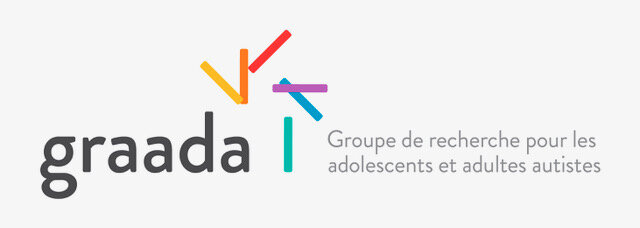
Grounded Research for Autistic Adolescents and Adults (GRAADA)
GRAADA works to promote and disseminate research of interest to stakeholders in autism.
The group shares accurate and high quality published papers, guides and conferences, makes them accessible and available to various stakeholders (autistic people and their family and friends, clinicians, students, researchers, the general public). The GRAADA also promotes research to facilitate recruitment, as well as the dissemination and mobilisation of knowledge.
In doing so, GRAADA aims to make knowledge accessible and clear for all, thus encouraging the services geared towards autistic adolescents and adults, that are grounded in solid research data.
The Founders
Stéphanie-M. Fecteau, Ph.D., Ps.Ed.
Associate professor in the Department of Psychoeducation and Psychology of the University of Quebec in Outaouais (UQO),
St-Jérôme campus
Through her research, Professor Fecteau aims to better understand the experiences of autistic adolescents and those of their parents, through an approach combining physiological and psychosocial variables. She is also interested in validating interventions for the prevention of chronic stress, in partnership with clinical settings and autistic people themselves.
Claude L. Normand, Ph.D.
Associate professor in the Department of Psychoeducation and Psychology of UQO, at the Gatineau campus.
Her research focuses on the development of children, adolescents, and young autistic adults or with intellectual disability (ID).
Above all, she works to understand what supports or prevents this population from enjoying an active and gratifying participation in society. Her most recent work looks at social participation through the relationships and activities they maintain online, through communication technologies and social media.
Marie-Hélène Poulin, Ph.D., Ps.Ed.
Full professor in Psychoeducation School at the University of Quebec in Abitibi-Témiscamingue (UQAT).
Her research primarily focuses on four areas: 1) developing intervention tools to build awareness among the public and guide young neurodivergent people, along with their family and friends; 2) guidance methods for practitioners working in social services; 3) practices that promote social participation among young autistic adults, 4) the psychosocial issues that can affect the developmental trajectory of people with an ASD (e.g. addictions, criminality).
After working for several years as a psychoeducator, she aims to align the purpose of her research projects with the needs of practise settings, clinicians, organizations and those affected by ASD.



